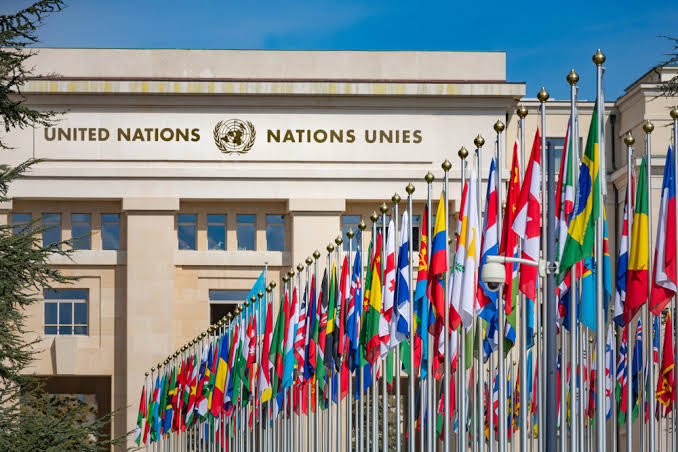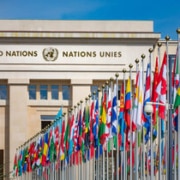Do Journalists Make Good Press Officers?
My short answer to this is: rarely
I had a furious row with a neighbour over New Year because he believed categorically that the United Nations is a waste of space and it has achieved very little in the last 40 years. Having worked extensively with the UN this makes me really mad. The world is far from perfect and solving a vast array of global problems – via cooperation – from climate change, to clean water, from the provision of education to devastating food crises, is phenomenally complicated. But the truth is, huge progress has been made over the last 40 years, and the UN is at the heart of that progress.
So why is this not widely recognised? There is plenty to discuss here but my prejudice is the UN is particularly guilty of hiring only ex-journalists for their press offices and as their spokespeople. Journalists are trained to concentrate on the negative. Tell them about a success and they will consider it their duty to say ‘Yes, but…’. As spokespeople, they will spend hours planning how to answer the inevitable tough ’you failed’ and ‘you compromised ‘ questions. What they always seem reluctant to do is tell the good news story.

So really, I am not surprised that my neighbour and many others, have such a misguided view of the reality of the huge progress in development across the globe, led by the UN.
[Bill Gates, while not necessarily promoting the UN, also became aware that good news on development was not getting out and for a while had a project to address the damaging misconceptions. And we should never forget the wonderful work of the late Professor Hans Rosling.]
For organisations, there are hidden pitfalls in hiring journalists as PRs. First and foremost, PR is a profession in its own right, although barely recognised as such. Professional PRs have knowledge of how things play out, how to balance an organisations’ objective with the news agenda. They know how to manage upwards (not something that is likely to come naturally to a star reporter), they have experience of dealing with internal executives who are all stakeholders (as opposed to the newsroom mantra of ‘no editorial interference’). PRs understand the timelines and the processes of being ready for news coverage: that might be getting the photos, pulling together the facts, finding the examples and of course, ensuring spokespeople are safe and trained. Journalists prefer the adrenalin rush of a breaking story.
And if there are problems for organisations, there are also challenges for the individual. It is extremely hard for most journalists to switch to PR. Getting the job is the easy bit, doing it is much more challenging.
There will always be journalists who decide to give up the daily grind, earn a lot more money and move across to PR. A journalist’s CV is a huge selling point when they are looking for a PR job. Specialist journalists stuck in trade press roles can easily be tempted by better paying PR jobs in their target sectors. A journalist with TV facetime, or a familiar radio voice will similarly command a premium in the market. They are likely to go in at a senior level with a much bigger salary, often with a team of PR people reporting to them. And yet it is a job they are not at all trained or suitable for.
Working journalists often believe they are the truth tellers, they have integrity, (as captured in the phrase ‘publish and be damned’). But PR can be all about project planning (an anathema to a journalist), about stakeholder management (ditto) as competing concerns within organisations try to influence press releases and messaging. It’s about compromise and sometimes it’s absolutely not about telling the truth, the whole truth and nothing but the truth.
Turning out press releases is very different and much more boring than writing newspaper copy. What is more, working experienced journalists have often only one pair of eyes checking their copy –in broadcast possibly no one at all. Emily Maitlis famously delivered an on-air monologue about the behaviour of Dominic Cummings. The apology from the BBC came after it aired, it’s likely no one read it before the microphone went live.
But, in PR several less well qualified people than you will check and ‘improve’ your carefully crafted press release. They will take out all the interesting bits, rewrite any quotes to make them much more boring, and even more annoyingly will hold the whole process up so that sometimes the relevance is lost.
Of course, I generalise, but PR moves more slowly and is way more controlled than most journalism.
Many journalists have successfully make the switch, eventually. Many continue as square pegs in round holes and others give up and go back to freelancing.
You have been warned.
- Media Savvy Operators Know How to Place a Quote - May 21, 2024
- The Magic of Performance - May 14, 2024
- Our Top Tips: - May 8, 2024




Great piece. For me, first of its kind of comparison. We call it “dharma” in India. Each profession comes with the basic necessities and the person doing that particular job whether s/he likes or not, has to justify their presence in the profession. A lawyer’s dharma is to fight for his client, even if s/he is on the wrong side of the case!
What may be going wrong as you rightly said, is the recruitment/placement of people with an assumption that good journalists can fit into PR job. Public Relations need to focus on creating/ensuring a safe space for the organization against all odds, whereas Journalists are always under pressure to say it, quickly and convincingly and are in the rat race of staying ahead of others. Thank you for bringing this topic up for discussion. This has some eye-opening points for recruiters. :)
Sivaram
Thanks for your comment Sivaram. I don’t know the word ‘dharma’ but it seems a useful one.
Great post – and, to use Sivaram’s term, I think it can also be a mistake to assume journalists have the appropriate “dharma” to be successful media trainers.
(Must admit I’d only heard of “dharma” in the Buddhist context of “the teachings of the Buddha”. Really interesting to learn of its use as “duty to others” – which may be what the Buddha meant them to be. The stuff I learn from your blog, Lindsay…)
I agree. It may be slightly simpler than being a full time corporate PR but it’s still a transition. Any teaching is a privilege and responsibility. The dharma is very real. Especially when we are dealing with people who hate to see themselves on video or who are introverts in general.
Steven Pinker’s book Enlightenment Now is excellent on the progress humankind has made over the past 50-100 years. He doesn’t specifically credit the UN, but the categories he chooses include many of those covered by UN agencies. It’s full of unarguable facts and figures and a powerful counter to the negativity of the doomsayers.
Thank you for your comment Oliver, I know Pinker but haven’t read Enlightenment Now. Clearly I should. I was a bit broadsided by the conversation at New Year and realise that I didn’t have all my facts to hand. Definitely need to do a Message House, if only for myself, on the issue. As a professional communicator I felt that on that occasion, I failed at putting a compelling argument together.
I have recently made this exact transition and was googling to read what others thought about the topic. I worked as a print journalist for 10 years and recently started working as a communications/PR officer at a government institution. My experience as a journalist is a major part of why they hired me and I would say is why I fit so well into the role. I know how the media works, I have extensive media contacts, I am known and respected for my work in journalism. The major difference I would say is journalism is about reporting the news and letting the readers form their own opinions. Or at least that is what it should be. PR is about disseminating information that influences the receiver and shapes their opinions in a way that is favorable to your company. I have had no issues performing in either role. And I think my years as a working journalist better prepared me for a PR role, especially since the organization I now work at is in line with what my beat was as a journalist. It’s like the stars aligned and I found a PR role that fits me so perfectly. It pays less than what I made as a journalist. But I took the job because the organization does work I am passionate about. So based on my experience, I would say journalists can absolutely make great PR professionals. They just have to find a company that’s the right fit. I don’t think I’d have functioned effectively in an energy company or a financial company, for example. But I fit right in where I am.